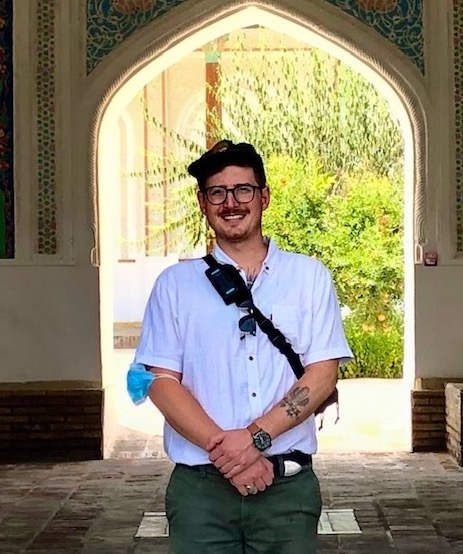Event Date:
Event Location:
- West Campus Point Faculty Housing Outdoor Plaza
On Saturday, April 20, the Center for Cold War Studies and International History (CCWS) will host an in-person workshop from 11:00-12:30 pm at the West Campus Point faculty housing community's outdoor plaza. We will be reading and discussing a paper, "The Spirit of Tashkent: Soviet Internationalism, Peaceful Coexistence, and Third World Conflict," by Matt Brown, a doctoral candidate in the UCSB History Department. Please join us for light refreshments and an exciting discussion of this work!
Abstract:
By all accounts, the 1958 Tashkent Conference of African and Asian Writers was a truly international event. Tashkent residents stood by as participants filed into the Alisher Navoiy Theater draped in intricately patterned African cloth, Indonesian songkok caps, turbans, and western-style suits. Not counting the Soviet Union’s multiple delegations from its Asian republics, representatives of 36 African and Asian countries arrived in Tashkent to give and listen to presentations about the literary culture and practices of their fellow attendees while building internationalist solidarity. Although the planning meetings and conference sessions were fraught with argument and debate, Senegalese writer Majhemout Diop declared, "The spirit of Tashkent will travel across Asia and Africa and throughout the world without a passport. It is the spirit of friendship and of peaceful coexistence, friendship among the Asian and African peoples and friendship between the peoples of the Soviet Union and the peoples of Asia and Africa." The Spirit of Tashkent was summoned once again in January 1966 under radically different circumstances but with the same meaning. Still standing for peace and mutual understanding between formerly colonized peoples, the Soviet-negotiated Tashkent Declaration marked an end to the 1965 Indo-Pakistani War in Kashmir as newspapers and politicians around the world lauded the Spirit of Tashkent as a guarantor of cooperation and progress. However, it soon became clear that the unity the Spirit of Tashkent represented only existed as hollow rhetoric.
This paper argues that the Spirit of Tashkent emerged at the confluence of local, state, and transnational phenomena as a means to overcome divisions between the Soviet Union and the emerging Third World solidarity movements. Tashkent’s already established importance as a symbol of post-colonial development, the Khrushchev-era Soviet policy of seeking peaceful coexistence with differing ideologies, and the global post-Bandung context of Third World activism and organizing came together at the 1958 Tashkent Afro-Asian Writers’ Conference to create the Spirit of Tashkent as a standard of peaceful engagement across ideological differences to promote mutual understanding and peace in the post-colonial world. Furthermore, using official records of the Conference, international news coverage of the event, and the memoirs of attendees, this paper argues that the continued and escalating conflicts between post-colonial societies over the subsequent 20 years do not represent the Spirit’s failure to deliver lasting unity, but rather its abandonment as a conceptual process by those who had first envisioned it, mirroring the fragmentation of the Third World and Non-Aligned Movements themselves.
Workshop attendees are encouraged to read Matt's paper in advance. They may gain access to it by contacting Nick Cohen at ncohen@ucsb.edu.


